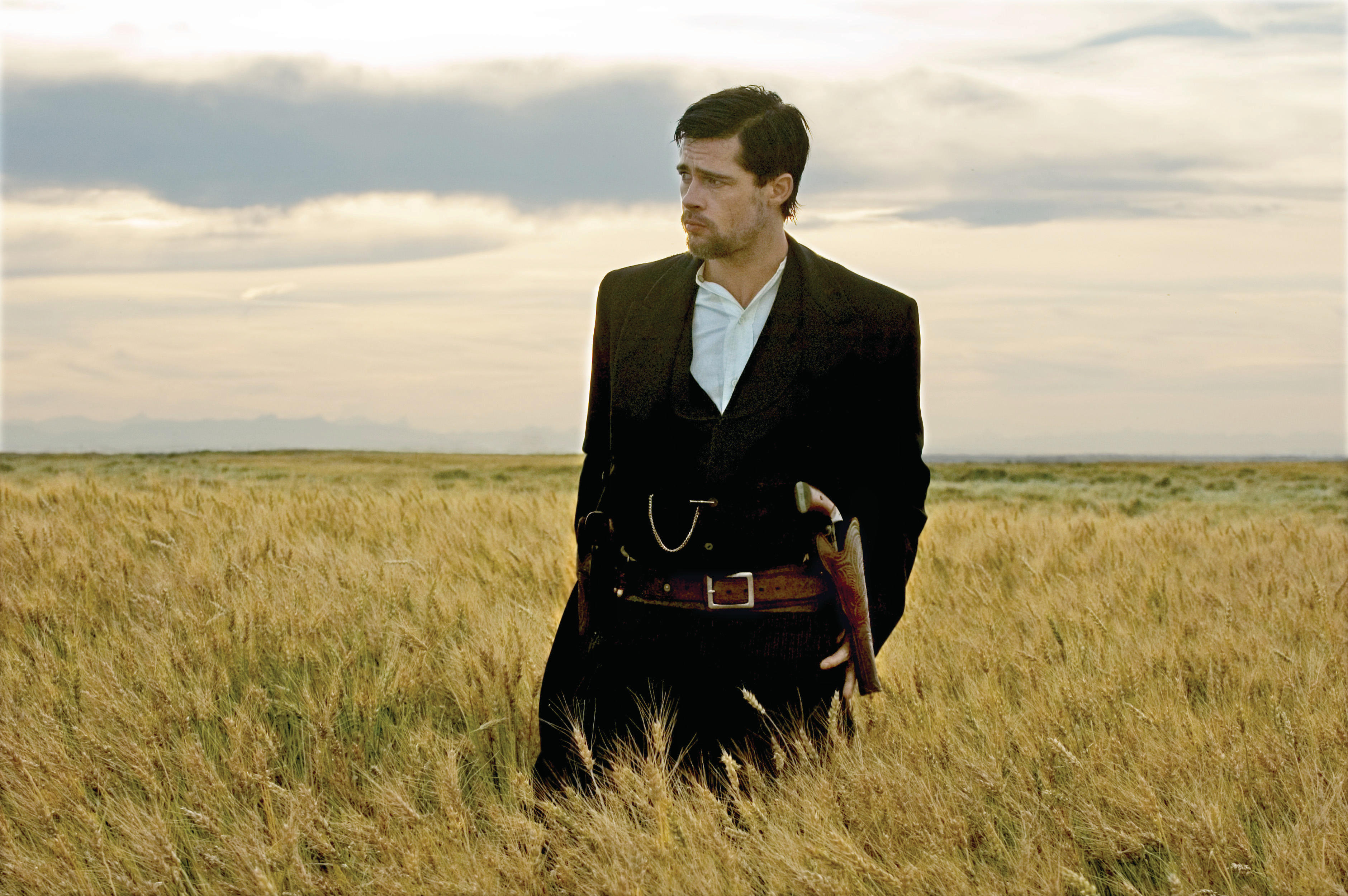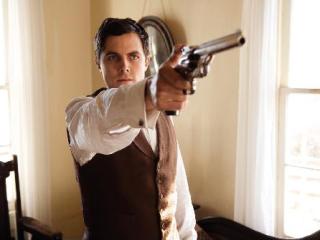
On a Saturday in late September, the gray hours were marked by occasional rains, and Kevin, having completed his affairs of commerce the evening prior and having no social prospects on the calendar, traveled to the theater on 68th St. to bask for a day in the fulgor of the cinematograph. And so it was that, three films into his personal odyssey, he came upon Andrew Dominik’s The Assassination of Jesse James By the Coward Robert Ford, a recount of the last days of one of the Old West’s most famous killers, and an analysis of the man who laid him low. Kevin found it to be an overly protracted and ultimately uneven work, to be sure. But he also found the movie often striking and occasionally beautiful, and — even if its reach exceeded its grasp — he admired the film for its ambition, and its confidence in taking extended, leisurely digressions. Kevin applauded Dominik’s attempt to pay homage to the films of Terrence Malick and to the sprawling psychological westerns of the 1970s. That being said, he found the interminable voiceover by Basil Exposition — which often needlessly described the action Kevin could witness for himself on the screen — more than a little irritating…
Thanks, Basil, I’ll take it from here. As Assassination begins, the James gang — or, more to the point, the gaggle of local toughs Frank (Sam Shepard) and Jesse (Brad Pitt) James have assembled for one last train heist in Blue Cut, Missouri — are waiting out the day in the woods. During this stopover, the weaselly wannabe Robert Ford (Casey Affleck), nursing a lean and hungry look, tries desperately to ingratiate himself with the celebrity brothers in turn. (If we couldn’t figure out from the title what part Ford will play in all this, he seems like trouble right from the get-go: one part Mark David Chapman (“I can’t shoot him like this. I wanted to get the autograph.“), one part Sirhan Sirhan (“I have achieved in one day what it took Robert Kennedy all his life to do.”)) And yet, through sheer dogged obsequiousness, Ford eventually manages to fall in with younger brother Jesse, who seems both amused by his blatant hero-worship and nonchalant about the quality of his riding partners. So, for the next two hours plus, we follow the twists and turns of Jesse and Robert’s doomed relationship, particularly as it becomes strained by James’ increasing (and justifiable) paranoia and Ford’s own delusions of easy immortality. And, as we eventually get to that fateful day when the shot is fired (and the years beyond), Ford slowly comes to discover that it’s one thing to kill a man. It’s another to live with yourself afterward.
Assassination definitely isn’t going to be everyone’s cup of tea, and, to be honest, it’s really not at the level that its pretensions seem to warrant: The film never achieves the psychological depths it purports to plumb — Ford in particular seems a pretty straightforward nutjob — and it runs for several beats too long. (The movie should already have ended two or three times over by the time Zooey Deschanel shows up.) And, then, of course, there’s that awful narration, which comes across as screenwriting on autopilot and nine times out of ten feels jarring and unnecessary. (I assume the passages come from the book by Ron Hansen, but they don’t work here at all. They either repeat — or worse, contradict — what we’re seeing. For example, the voiceover tells us in the first ten minutes that Jesse James was a constant blinker, after which Brad Pitt stares at things with an unfaltering, steely blue gaze for three hours.)
That being said, with some wonderful cinematography by Roger Deakins (who also shot In the Valley of Elah) and a solid, colorful cast, Assassination does have its moments. It’s always grand to see Sam Rockwell, and he’s quite commendable here as Bob’s older brother Charlie. (And, while he at first appears to be a mere buffoon, there’s more to him as the movie goes along.) Deadwood‘s Garret Dillahunt also adds another finely-honed cowboy to his western repertory here: His Ed Miller, an outlaw sadly operating a few cards short of a full deck, is a far cry from both Jack McCall and Frances Wolcott, but memorable nonetheless. And there’s plenty of other good work here, including outlaw turns by Jeremy Renner (of 28 Weeks Later), Paul Schneider (looking like the lost Fiennes brother), and, of course, Affleck and Pitt, both of whom bring their A-games to the table (even if Pitt’s motivations in his final moments escaped me.) Also, I’m forced to admit, I was rather tickled by the mean old cuss they acquired to play the Governor of Missouri…

